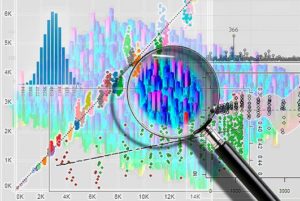
Secretary General Kunio Mikuriya in his message explained the importance and relevance of the theme, noting the ways data flows along the global value chain and how customs can use it to support globalization.
“Customs administrations have shown keen interest in leveraging the potential of Information Technology (IT), implementing and using digital technologies to achieve their objectives and responding to the expectations of traders, transport and logistic operators and governments,” he said.
This year, noting that the technology has gained momentum among its members, WCO said it wants to “consider the power of data to propel customs to new heights.”
“While developments in Information Communication Technology (ICT) and its wider use have made the collection of data and access to open data easier, the real challenge is about making sense of a vast amount of information through proper processing and analysis,” said the executive.
“This will help customs officers to drive priority‐setting, decision-making, performance measurement, integrity and compliance strategy, budget planning and forecasting, and operations.”
He added that in recent years, a whole gamut of new tools has emerged with the potential to help people leverage data in new and powerful ways. “Traditional methods for detecting and managing risks have served many administrations well, but there are now new opportunities to use more advanced methods to get the most value from the information available.”
Data, used in conjunction with analytics and other emerging technologies, may provide new opportunities to advance mission-critical objectives, he further stated.
He also pointed out the vulnerabilities of cross-border transactions linked to e-commerce and the importance of understanding the challenges to be able to support legitimate trade and combat illicit trafficking.
“To optimize its use, we need to obtain quality data and in a timely manner. Further, there is a need for border agencies to harmonize data being circulated and to develop skills pursuant to the IT challenges. Customs administrations also need to ensure that privacy and confidentiality laws are respected so as to uphold the confidence of the society,” said Mikuriya.
In the months ahead, he continued, the WCO’s work will include the enhanced promotion of tools such as the WCO Customs Enforcement Network; the WCO Time Release Study; mirror analysis by using the HS Code to compare imports and exports to detect anomalies in quantity, weight or value; the WCO Performance Measurement Contracts Guide to improve customs procedures and integrity; and the WCO Data Model which supports data analysis by improving data collection and enabling data sharing between government agencies.
Photo: Oscar de Lama









